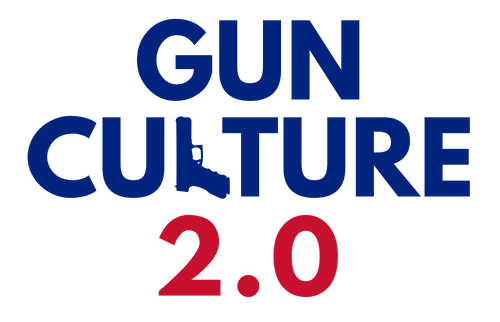NOTE: I recently unpacked my hodgepodge of notebooks about gun culture to begin thinking about writing another book in 2025. Seeing John McPhee’s Tabula Rasa in a local bookstore inspired me to empty those notebooks here. Be advised: These are truly notes and not composed ideas.
Even as I have been finishing, publishing, and promoting Gun Curious these past 5 years, I have often thought about the book I set aside to pursue a trade book written from a first-person perspective. Gun Culture 2.0 the book is my more academic treatment of American gun culture. It engages more directly with the dominant scholarly perspective on guns, what I call “The Master Narrative of Democracy Destroying Right-Wing Gun Culture.”
In unearthing my notebooks recently, I found some genuine thought fragments that point to the perspective I want to use to animate Gun Culture 2.0.
The Master Narrative (essentially – this is a dramatic abbreviation) holds that the United States was founded as a racist, settler colonialist cisheteropatriarchy; that this influenced the development of gun culture in the country; and that it continues to shape gun culture today.
Like “The Standard Model of Explaining the Irrationality of Defensive Gun Ownership,” The Master Narrative emphasizes the symbolic nature of guns, a nature driven by political and economic concerns. As Jennifer Carlson writes in her foundational book, Citizen-Protectors, “For the most part, gun carry is symbolic” (p. 112). Why? Because most people will not have to shoot someone in self-defense.
So, what motivates defensive gun ownership today? The fatal intersection of downward economic mobility of white men, toxic masculinity, racial resentment, and right-wing political ideology.
The Master Narrative tells a story of guns in America that holds some truth, like all stories do. Just as telling the story of America from the perspective of dominant groups does. The story of immigration to America told from the perspective of those who came through Jamestown and Ellis Island is a true American story.
But as Ron Takaki — the legendary UC-Berkeley historian and my fellow Japanese-American with Hawaiian roots — highlighted when I was in school, we can also look at American history in “a different mirror.”
What if we looked at guns, gun owners, and gun culture in a different mirror? What if we focused not exclusively on the symbolic dimension of guns but took seriously their practical dimension? Would this move us away from the homogenized view that animates The Master Narrative? Would this help us to see the diversity of gun culture and diversity in gun culture?
I think so. This is the working thesis of Gun Culture 2.0.



“…Jennifer Carlson writes in her foundational book, Citizen-Protectors, `”`For the most part, gun carry is symbolic” (p. 112). Why? Because most people will not have to shoot someone in self-defense.’…”
This is no less true for police officers. Are their guns also merely symbolic?
“…So, what motivates defensive gun ownership today? The fatal intersection of downward economic mobility of white men, toxic masculinity, racial resentment, and right-wing political ideology….”
Here, Carlson is merely engaging in an educated style of name-calling.
Defensive gun ownership is so that we can resist possible future demands that we choose between surrendering our lives and our liberty (e.g., if a violent criminal threatens to murder us unless we obey him). This happening to us may be no more likely than a high-speed automobile head-on collision — but it’s a small inconvenience to buy a car with airbags, fasten our seatbelts and shoulder harnesses, and to strap on our handguns.
It’s true that automobile safety devices are not designed to apply deadly force in self-defense (i.e., to “kill”). That’s why handguns are also important.
LikeLiked by 1 person
All very interesting, but misses a lot of the psychological (intra-individual).
The inferences by Carlson that are presented completely remove the individual from the equation. Yes, perhaps, at a sociological level, `….gun carry is symbolic” (although I would argue that it is the individual issues of the perceiver that lead to its perception as such) or defensive gun ownership is motivated by “The fatal intersection of downward economic mobility of white men, toxic masculinity, racial resentment, and right-wing political ideology.” All overgeneralizations and stereotypes that negate the individual experience.
Seems a strange approach for someone who would likely beseech us to remember that we are all unique. Except gun owners – they’re all the same.
LikeLike
So, what motivates defensive gun ownership today? The fatal intersection of downward economic mobility of white men, toxic masculinity, racial resentment, and right-wing political ideology….”
So. Um. What does she have to say about black men and women, like me, who are also gun owners? And there are a lot of us.
LikeLike